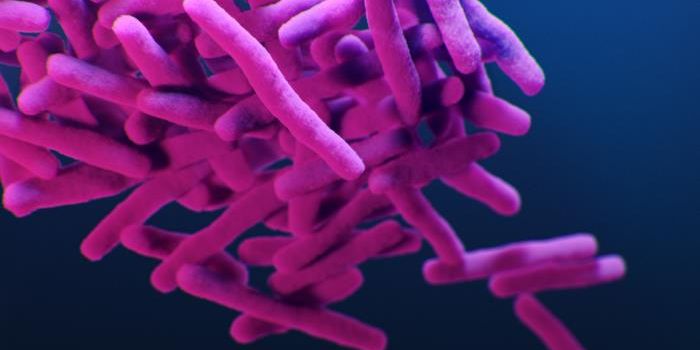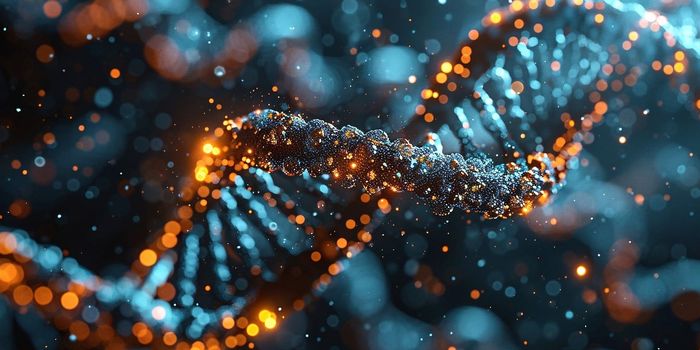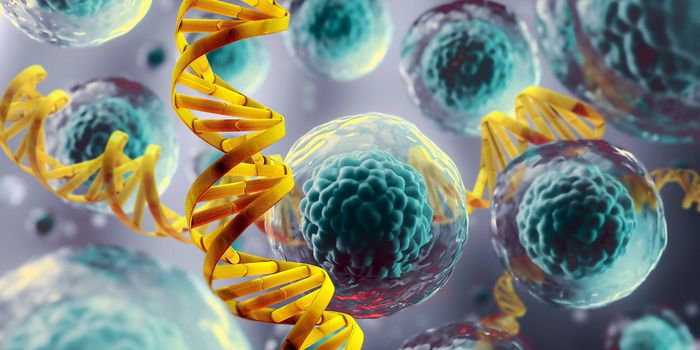Targeting Aneuploidy in Cancer Cells
Cancer is often related to problems in cells' genomes that lead to uncontrolled cell growth, and the subsequent formation of tumors. Scientists have long searched for ways to target and destroy cancer cells while leaving healthy cells unharmed; it may be possible to take advantage of a cancer cell's genomic characteristics in order to destroy it. One of the characteristics that's often found in cancerous cells and not in healthy cells is aneuploidy, in which there are an abnormal number of chromosomes in a cell (some healthy tissues do have aneuploid cells). Researchers have now shown that it may be possible to exploit aneuploidy to eliminate cancer cells. The findings have been reported in Nature Medicine by an international team of researchers.
Aneuploidy, in which cancer cells have more than the normal 46 chromosomes, has been shown to advance cancer progression when it appears, and has long been recognized as a feature of malignant cells. However, we still have a lot to learn about how cancer and aneuploidy are connected.
Senior study author Dr. Uri Ben-David of the Sackler Faculty of Medicine at Tel Aviv University noted that the most common genetic alteration in cancer cells is aneuploidy. An estimated 90 percent of solid tumors including breast and colon cancers are thought to be aneuploid.
Bioinformatic methods were used in this study to measure aneuploidy in around 1,000 cancer cell lines growing in culture. The researchers looked at drug sensitivity and genetic dependency in aneuploid cells compared to cells with low levels of aneuploidy. This comparison revealed that aneuploid cancer cells are sensitive to the genetic disruption of a cell cycle checkpoint that ensures the correct separation of chromosomes during cell division.
The researchers also found that when that checkpoint is chemically inhibited in healthy cells with the right number of chromosomes, cell division was halted. Chromosomes then separated properly, and there were few problems. But when that checkpoint was inhibited in aneuploid cells, the researchers were surprised to see that cell division continued anyway, and many chromosomal aberrations arose. So, while aneuploid cancer cells were able to overcome the disruption of a critical cell cycle checkpoint and keep dividing more easily than normal cells did, their survival in the long-term was jeopardized.
Drugs that delay chromosome separation are already in clinical trials, but clinicians and researchers still don't know who might respond to these drugs. This work indicates that aneuploidy could be a useful biomarker to identify the patients who are the best candidates. The researchers also suggested that creating new drugs that target various mechanisms of chromosome separation will be important; cancer cells rely on some proteins more heavily than others.
However, these findings, noted the researchers, did not come from clinical samples but instead from cell lines in the lab, which could be a significant limitation.
"It should be emphasized that the study was done on cells in culture and not on actual tumors, and in order to translate it to [the] treatment of cancer patients, many more follow-up studies must be conducted. If they hold true in patients, however, our findings would have a number of important medical implications," Ben-David concluded.
Sources: AAAS/Eurekalert! via Tel-Aviv University, Nature Medicine









